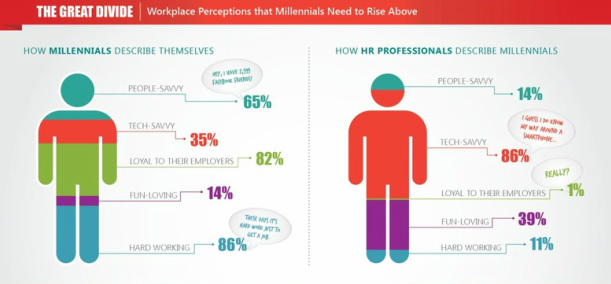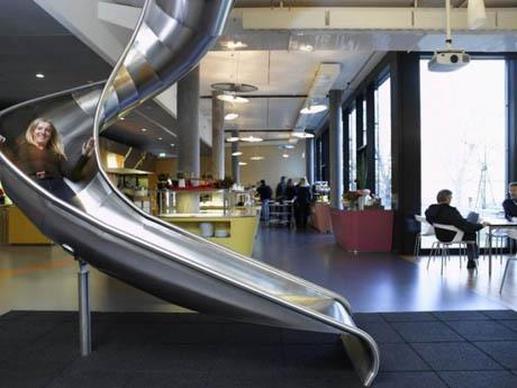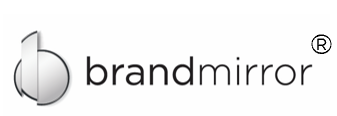Guest blogger: Millennial Laura Peñalver, current intern at BrandMirror
In case you missed the first blog, you can find the first 5 things companies need to know about millenials here, 10 Critical Things Companies Need to Know About Millenials (Blog 1 of 3).
6. Millennials are tech savvy X False
Millennial Marketing put it best in their aptly titled article “Millennials Tech-Dependent, But Not Necessarily Tech-Savvy.” Sure, Millennials may be the most avid users of technology. On average, 75% of all 13-17 year olds have a mobile phone, 93% go online (76% with broadband), and 80% have a console gaming device (Pew Research). They may also be hooked on technology in a way that borders on an addiction, such as in a recent ICMPA study where students used literal terms of drug and alcohol addiction to characterize their dependence on media. In the study, University of Maryland students were required to go 24 hours without media, leading one student to comment “I felt like a person on a deserted island…. I noticed physically, that I began to fidget, as if I was addicted to my iPod and other media devices, and maybe I am.” Another student lamented that “On Friday, I had to walk to class and stare at everyone as I passed because I had nothing else to do.”
The relationship between Millennials and technology is complicated, because while clearly Millennials have some deeply ingrained dependency issues with technology, they also only understand it at the most elementary level. What’s more, they are aware of this fact. According to UCLA’s annual Freshman Survey, only 38.1% of incoming college freshmen self-identified themselves as above

Infographic by Beyond.com
average in computer skills. In the infographic below created by Beyond.com, 35 percent of Millennials described themselves as tech savvy while a whopping 86 percent of HR professionals described Millennials as tech savvy.
Millennials are adept at social media and the main platforms like Google, Youtube, Yahoo etc., but are at a loss when it comes to challenging web development and programming. Only half of 18-24 year olds are considered “creators” and use RSS feeds, wikispaces or other productivity enhancing tools. What does this mean? Well, it means that companies should definitely be engaging in creating tech savvy tools for Millennials such as apps, just do not expect all of them to know how to create the app itself.
7. Millennials are entrepreneurial ? Somewhere in Between
Figures such as Mark Zuckerburg fuel this belief that Millennials are deeply entrepreneurial, and while Millennials do have the largest proportion of self-made millionaires and billionaires under the age of 30, statistics show that the Marks of the world are the exception, not the rule. According to the Higher Education Research Institute, Millennials are less interested in becoming entrepreneurs than Baby Boomers when they were the same age. What Millennials are, however, are intrapreneurial, an entrepreneur within an organization. This characteristic calls for a more collaborative work environment. As a Campaign article put it, for an ideal intrapreneur work environment, even “the way information travels and influence grows is in a flatter, more nodal and less hierarchical way.”
This belief challenges the traditional view held by Gen Xer’s and Baby Boomers that an employee needs to earn his keep and work his way up the ranks, but that is not necessarily a bad thing. In conjunction with this shift in expectations in the workplace, Millennials bring to the table a plethora of positive qualities. Forbes identifies them as “Greenhousers” who can “grow the seed of an idea into a full-blown plan.” They are innovators. Most of all, they have integrity and are authentic.
8. Millennials are not loyal to companies ✓ True
According to the U.S. Bureau of Labor Statistics, employees will only spend 1.5 years with their employer, and over 60 percent of Millennials will leave their job within 3 years. A survey by Millennial Branding and Beyond.com “The Cost of Millennial Retention” surveyed hundreds of HR professionals in various industries, and found that 87 percent of companies said it costs them around $15,000-$25,000 to replace each millennial employee they lose. Companies are bending over backwards to increase retention, and among the qualities of the top companies for Millennials are “wacky events” like chocolate fairs and a circus. Google, a long-time favorite of the younger crowd, gives their employees access to gyms, massages, relaxation classes and organic food. They even have slides in their office and other cool features you can explore here.

Image by Cartel Communications via Flickr
These qualities sound great, and who wouldn’t want them? Except for the fact that 51 percent of companies report that the cost of training and development is the highest when hiring Millennials.
9. Millennials dress too casually ✓ True
Even down to what they wear to an interview sends off the wrong message. According to an Adecco poll, 75 percent of hiring managers say that Millennials’ biggest interview mistake is wearing inappropriate interview attire. While Gen-Xers might consider casual to mean wearing jeans on Fridays, Millennials are far more liberal with the definition, stretching it to include tank tops, flip-flops, rips in clothing, etc. Why should Millennials care? Well, for one thing, hiring managers are already three times as likely to hire a mature worker, defined as age 50 or above, than hire a Millennial. One bad first impression is all it takes. Later in our blog series we will be addressing some tips and tricks to help Millennials put their best foot forward and sidestep miscommunication. At the same time, smarter companies are acknowledging this casual trend and are willing to work around it as long as the change does not affect productivity.
10. Millennials expect raises and promotions too soon ? Somewhere in Between
As William and Mary student Nathaniel Chen explains, “Experience is not equivalent to productivity. Raises should not be based on how long a person has been with a business, but on how much of an asset he is due to his skill set and what he can contribute to the company.” As mentioned above, Millennials stay with a company 1.5 years on average. One of the main reasons why Millennials leave their job in such a short amount of time is because they feel they are stagnating at their current job or feel that any career advancement will only come after the slow and tedious climb up the corporate ladder. Rather than feeling “stuck,” job-hopping gives them the ability to speed career advancement. Based on these statistics, there is no question that Millennials expect raises and promotions sooner than the previous generations.
What makes this point “somewhat” and not a definite “yes” is that while the Millennial time frame for raises and promotions is smaller than it used to be, it cannot be determined whether or not it is “too soon.” It is definitely less than what the Gen-Xer’s and the Baby Boomers experienced, but it is situated in a different social environment. To put it into perspective, Pew research shows that on average, 10,000 Baby Boomers are retiring each day. As the Harvard Business Review explains, “when baby boomers—the 76 million people born between 1946 and 1964, more than one-quarter of all Americans—start hitting their sixties and contemplating retirement, there won’t be nearly enough young people entering the workforce to compensate for the exodus.” It continues on to point out that “the most dramatic shortage of workers will hit the age group associated with leadership and key customer-facing positions.”
With such a shortage, Millennials will be climbing the ranks at a much faster rate to fill those upper-level spots. It might be a stretch to say that there is a correlation between the Millennials point of view on rapid job advancement and the Baby Boomers head towards retirement, but the two points are surprisingly complementary.
In Summary
Millennials are reinventing the cultural landscape of the workplace. Of course they have their flaws as every generation does, but to only focus on the negative inhibits us from investing in the truly fantastic qualities they bring to the table. They are innovative, forward thinking, and team players. With these traits in mind, how can companies properly leverage Millennials unique attributes to support a thriving work environment? Be on the lookout for our upcoming third blog, where we will discuss companies that are doing it right, and how your company can as well.

Laura is a junior at the College of William and Mary pursuing a degree in Marketing with a Hispanic Studies Minor and is also a current intern at BrandMirror. She is an active member of the volunteer fraternity on campus where she helps organize philanthropic events and has a passion for travel, hoping to study abroad next spring.
